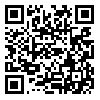Volume 27, Issue 1 (2020)
EIJH 2020, 27(1): 48-58 |
Back to browse issues page
Download citation:
BibTeX | RIS | EndNote | Medlars | ProCite | Reference Manager | RefWorks
Send citation to:



BibTeX | RIS | EndNote | Medlars | ProCite | Reference Manager | RefWorks
Send citation to:
Hosseini Beheshti S A. Measuring Democracy and Justice by Public Reason: Towards a more just framework for social cooperation in Iran. EIJH 2020; 27 (1) :48-58
URL: http://eijh.modares.ac.ir/article-27-37435-en.html
URL: http://eijh.modares.ac.ir/article-27-37435-en.html
Assistant Professor, Department of Political Science, Tarbiat Modares University, Tehran, Iran , a.hosseinibeheshti@modares.ac.ir
Abstract: (4345 Views)
John Rawls introduced the idea of public reason as a precondition of decision-making processes based on justice in a well-ordered society. There are critics, however, who doubted whether the idea is consistent with deliberative democracy. While Rawls saw his idea of reasonable overlapping consensus as an outcome of public reasoning, his suggested political liberalism seems to be morally too thick to work as the basis of such a consensus in culturally diverse societies. Here, through a critical evaluation of Rawls’s view, I try to use his idea of public reason by reference to the brilliant distinction he makes between ‘the rational’ and ‘the reasonable’. I show that it is the latter, which defines the nature of ‘the political’, that could be employed for the relationship between different cultural identities of a society, governed by political principles justified by referring to thin or non-moral arguments that in turns allow liberal as well as non-liberal cultural communities to participate in a just framework of social cooperation. Moreover, I argue that this revised interpretation of Rawlsian overlapping consensus can help us in the democratic assessment of constitutions and revising them in order to became more legitimate to citizens. Using this theoretical framework, and as the Islamic Republic is claimed to represent a religious democracy, I suggest that the criterion of public reason can be used in assessing the Constitution of the Islamic Republic and, therefore, highlights the necessary revisions for achieving more democratic basic structures of the Iranian society.
Keywords: John Rawls, public reason, constitution, deliberative democracy, cultural identity, Islamic Republic of Iran
Article Type: Original Research |
Subject:
Arts and Humanities (General)
Received: 2019/10/16 | Accepted: 2019/10/16 | Published: 2020/12/20
Received: 2019/10/16 | Accepted: 2019/10/16 | Published: 2020/12/20
Send email to the article author
| Rights and permissions | |
 |
This work is licensed under a Creative Commons Attribution-NonCommercial 4.0 International License. |







